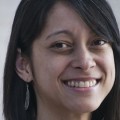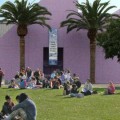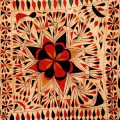A music professor once told me that composing a piece of music and cooking Indian food were essentially the same process. However, he never said that orchestrating an elaborate partnership with 30 different arts institutions could be like sharing a banquet together.
The way I see it, just such a banquet is about to begin. As of right now, the San Jose Museum of Art launches a new collective exhibit, Around the Table: Food, Creativity and Community. It arrives in three courses and extends far beyond the confines of Downtown San Jose.
A wide community of partner organizations will participate in the food and the creativity. Activities include gleaning tours, farm visits, performances, initiatives and exhibitions, all exploring the roles that food plays in our lives. That means food trucks and molecular gastronomy and every aspect of food anywhere between, fast or slow. Fans of hot dog stands or Chez Panisse will find something to, um, chew on.
The first course comes in the form of an epilogue. And why not? Sometimes when composing a piece of music, it’s helpful to start with the end first. And since a few pieces of roti (the round, traditional South Asian flatbread) can accompany virtually anything, Epilogue (2010 – 2011) opens this weekend at the San Jose Museum of Art. In the exhibit, Mumbai artist Jitish Kallat honors his late father in a series of intensely personal photographs of progressively eaten roti. Each digitally made image represents one of the 22,000 moons that bore witness to his father’s 62-year lifespan. The moon is no longer made of green cheese. It’s made of garlic, whole wheat flour and ghee instead.
Around the Table coordinator Robin Treen says the ubiquity of roti in many cuisines makes it a perfect introduction and prelude to the larger show, which opens in November.
“Some form of bread is made in every culture on earth,” she says. “It also speaks to the whole concept of food as ritual, and the passing of time, all the milestones of life, all the rituals that we pass from the very beginning to the very end. And then there’s that tie-in of breaking bread together, and all the rituals involved with food and eating and breaking bread together.”
Come November, the second and main course begins, with the commencement of the title exhibit, Around the Table: Food, Creativity and Community. More than 30 artists will participate, including 17 that were commissioned just for this show. Organic white beets grown in Petaluma have been converted into pulp-like material for one artist to make papyrus. Another artist will make furniture from compacted mushrooms. A lending library of seeds, some curry wallpaper or a kitchen converted into a pedal-powered, low-rider taco cart are also planned.
The third course, Talk Around the Table, transforms the museum’s Davies Gallery into a constantly changing gathering space in which observers/participants can engage in hands-on activities, view documentaries, share ideas via social media, and discover facts and myths about food. Assistant curator Rory Padeken said that with food being such an important topic in California these days, the time was right to involve a network of institutions and make it a banquet, so to speak.
“We thought that food, being something that we can all relate to, in one form or another, would be a perfect way for other organizations to come on board with us and contribute in whatever way possible, to the exhibition and the community-wide festival,” Padaken says.
As a result, a wide variety of participants from different fields of expertise are now coming together. From San Francisco down to Watsonville, they include visual and performing arts organizations, urban farming and gardening organizations, the Second Harvest Food Bank, Peninsula Open Space Trust, Veggielution, Palo Alto Art Center and many more, providing everything from exhibitions and performances to panel discussions that address all kinds of issues ancillary to food and creativity.
“Everyone has a place at the table,” concludes Padaken.
‘Around the Table’ Stage One: ‘Epilogue’
Sept. 6-April 20, Tue-Sun, 11am-5pm
$8 adults/$5 students and seniors
sjmusart.org
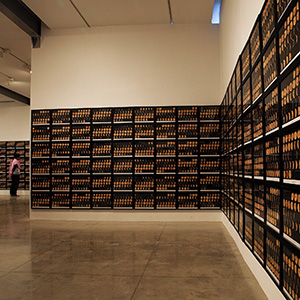
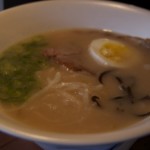 Ramen Taka, Japanese ramen house opens in Santa Clara
Ramen Taka, Japanese ramen house opens in Santa Clara  C2SV Tech Conference and Music Festival Arrives Sept. 26
C2SV Tech Conference and Music Festival Arrives Sept. 26 